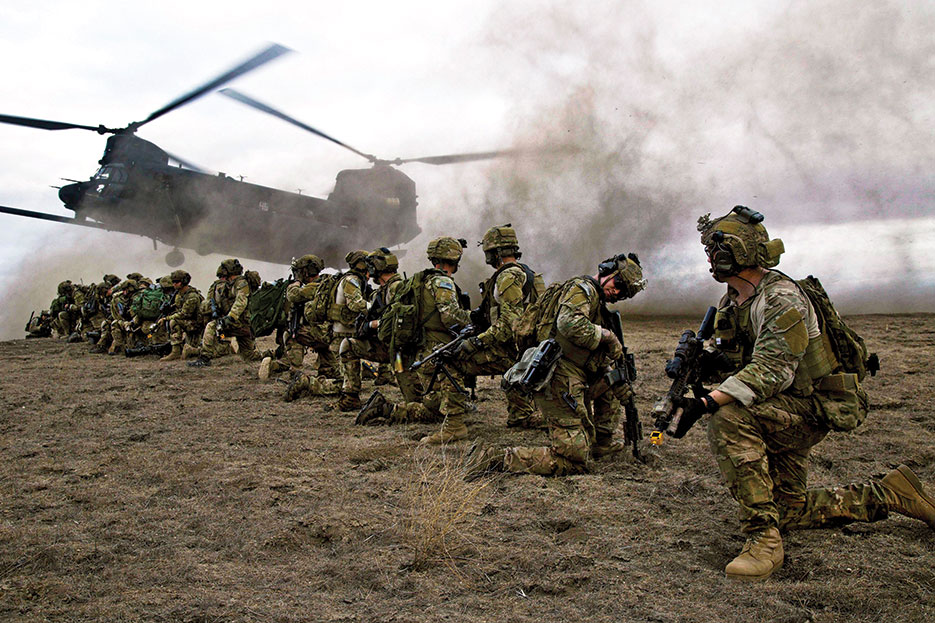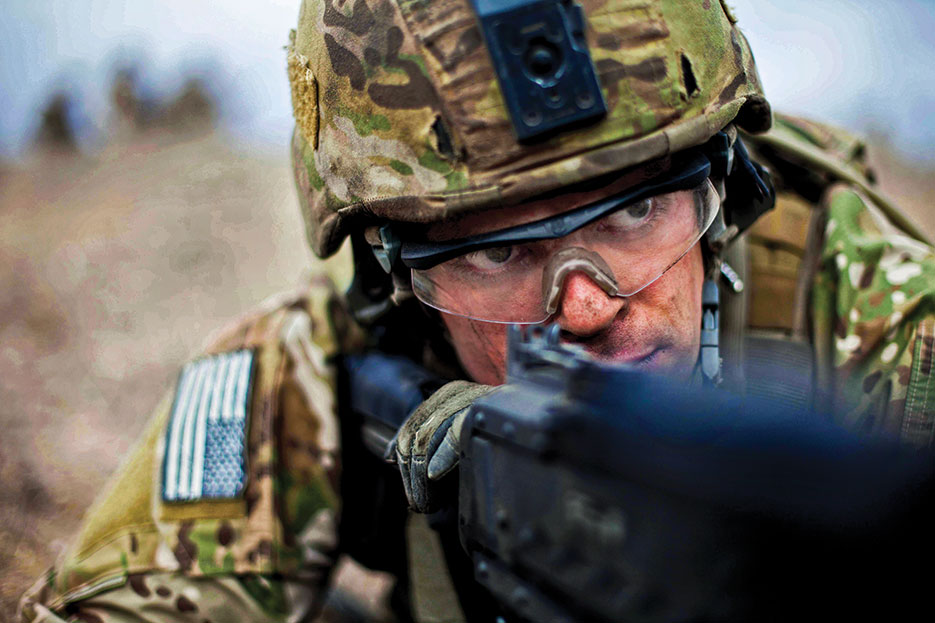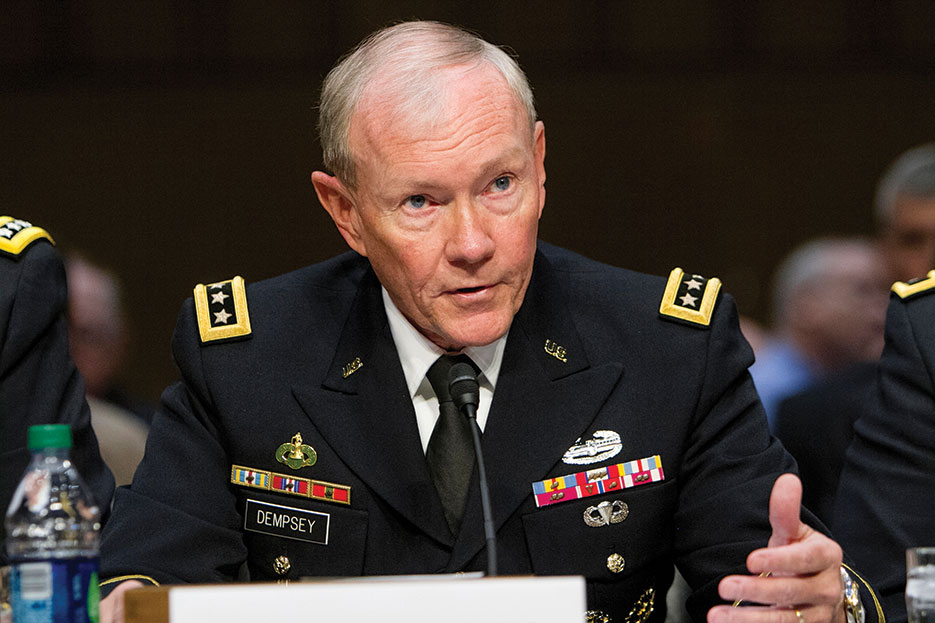Recently, the subject of military “professionalism” has gripped the attention of top echelons of the Department of Defense (DOD) to a degree that is perhaps unprecedented. Most notably, Chairman of the Joint Chiefs of Staff (CJCS) General Martin E. Dempsey has directed each of the Services to review and rearticulate its understanding of the profession of arms in the context of its particular missions, traditions, and practices. Former Secretary of Defense Chuck Hagel signaled his own concern with such matters by appointing a two-star admiral as his special assistant for military professionalism and ethics. And at both the joint and Service levels, serious attention is starting to be given to improving and systematizing the way the U.S. military develops its leaders and communicates what it expects of them. In the discussion that follows, I focus on the issue of military professionalism in a broad joint or DOD perspective, leaving aside for the most part Service-related professionalism issues.

Army Rangers assigned to 2nd Battalion, 75th Ranger Regiment, prepare for extraction during Task Force Training on Fort Hunter Liggett, CA, January 2014 (U.S. Army/Steven Hitchcock)
There are several proximate reasons for the renewed focus on military professionalism. A steady drumbeat of scandal has dogged the military in recent years: the Abu Ghraib abuses in Iraq, desecration of enemy corpses in Afghanistan, cheating on proficiency tests, personal corruption, and sexual misbehavior of all kinds. Particularly alarming is the widespread and well-publicized incidence in the military (including relatively senior ranks) of sexual harassment and sexual assault, which has resulted in intense political pressure on the military to take drastic steps to address this problem. At a more fundamental level, however, there seems to be a sense among Pentagon leaders that the demands of “the long war” have taken a psychological toll on our military—especially the Army and Marine Corps—that has contributed to a noticeable erosion of the traditional values underpinning the professional ethos of the Armed Forces.
Compounding these concerns is what can only be described as the continuing disintegration of traditional moral and cultural values in the larger society. The weakening of organized religion in much of the country, the breakdown of the family, the impact of Hollywood and popular music, and related developments pose a formidable challenge to the good order and discipline of a military that, thanks to the Internet and contemporary social media, is even more inextricably embedded in civilian society and culture than ever before. Our military leadership has for the most part resisted the temptation to blame bad behavior by the troops on the external environment (“the culture made me do it”). It is, rightly, sensitive to the danger of encouraging those in uniform to look down on their civilian counterparts. At a certain point, however, one wonders whether some hard choices will not have to be made in this respect. The Marine Corps has long recognized that the socialization of young recruits necessitates a certain countercultural stance toward American society.1 The time may well be approaching when the other Services will have to follow suit if American military professionalism is to be sustained over the long run.
What is military professionalism? Surprisingly little serious thought seems to have been given to this question since Samuel P. Huntington’s classic work The Soldier and the State, published more than a half-century ago.2 Many seem to understand “professionals” as merely the opposite of “amateurs”—that is, people who are paid to do a job requiring a high level of competence and skill. (Like professional football players, so the joke goes, military officers are skilled at what they do and “look good in a uniform.”) A recent survey of junior Army officers revealed considerable uncertainty and doubt as to the meaning of professionalism in that Service. One respondent claimed, “I know very few Army officers [who] consider [themselves] under the term ‘professional’ in the same category as doctors and lawyers.” Some felt that Army professionalism had been degraded by various monetary incentives; others cited pervasive micromanagement and lack of trust on the part of senior leaders as factors undermining their professional status.3 All of this is symptomatic of a larger problem extending throughout the Services: the creeping bureaucratization of the military establishment.
A government bureaucracy, like a traditional business corporation, is a hierarchical structure designed to maximize efficiency through highly routinized processes and behaviors. The military Services are and indeed have always been bureaucracies, with the pathologies inherent in such organizations. But the Services have also had a professional component that has served to limit and counteract the ill effects of bureaucracy. A key aspect of professionalism is institutional autonomy. The military art cannot be reduced to a set of routinized rules of behavior but requires independent or discretionary judgment and the intellectual and moral preparation to exercise it responsibly. By the same token, a true profession is self-policing in terms of recruitment, the setting of standards of competence, and promotion. Professionalism rightly understood serves a particular mission that the professional body alone has a socially recognized ability to perform. When professionalism is eroded by bureaucratization, the accomplishment of that mission has a tendency to take second place to the care and feeding of the organization and its individual members. At this point, professional pride tends to be eclipsed by a trade union mentality and loyalties become focused on the organization more than on the larger society it is meant to serve. When this happens in a military organization, the trust the broader society reposes in that organization is at risk and fundamental frictions in the civil-military relationship are likely to result.
In Huntington’s well-known analysis, military professionalism is the key to healthy civil-military relations—what he calls “objective control” of the military by its civilian superiors. Under a system of objective control, the military is conceded substantial autonomy in the areas just mentioned in return for its respect for and noninterference in the decisionmaking of the civilian leadership. But this is possible only if the military is a professional one. By contrast, nonprofessional forces (for example, civilian militias) require “subjective control”—that is, direct and continuous involvement by the political authorities in managing them.4
It has to be said at once that the American experience has never been completely congruent with Huntington’s objective control model.5 But his argument about the importance of military professionalism for the civil-military relationship remains a fundamental insight. Since the end of the Cold War, some observers have called attention to what they believe to be signs of growing frictions, if not an incipient crisis, in civil-military relations in the United States. Others have expressed concerns over an alleged “militarization” of American foreign policy as exemplified in the increasingly important diplomatic roles of our regional combatant commanders. Whatever the truth of the matter (it is easy enough to argue that such concerns are sometimes grossly exaggerated), any rethinking of military professionalism today needs to be centered in these larger issues.6

Army Ranger sights target with M240L machine gun during company live-fire training at Camp Roberts, CA, January 2014 (U.S. Army/Teddy Wade)
Every profession must understand and accept its mission and the nature of the competencies that enable it to achieve the mission. These competencies are sometimes referred to in the relevant literature as “jurisdictions.”7 These jurisdictions are not necessarily stable but rather are subject to change over time, as the mission itself evolves in differing circumstances or other competing organizations vie for them. They are subject to negotiation and renegotiation both horizontally (with competing organizations) and vertically (with higher authority). In Huntington’s study, the mission or jurisdiction of the military profession is famously said to be “the management of violence.” This is clearly inadequate, both because it is too general (remember the professional football player) and because it is too narrow to account for all the competencies militaries necessarily (or often, or ideally) require. A more current term, subject to similar objections, would be warfighting.
There is a considerable lack of agreement and basic clarity about the current jurisdictions of the U.S. military, both within and outside its ranks. Perhaps most striking is the issue of “strategy.” The U.S. military over the years has tended to be reluctant to take full ownership of strategy as a mission, and at times has seemed to abdicate it in favor of civilians (in the case of nuclear strategy or McNamaran systems analysis) or to higher authority (the State Department or National Security Council). It is sometimes suggested that the ascendency of operational art at the expense of strategy in current military parlance has been significantly motivated by an essentially bureaucratic desire to minimize civilian interference in the military sphere.8 It is doubtful that any of the Services have really operationalized strategy in their personnel and education systems. There has been a proliferation of so-called strategy documents in the military and within the U.S. Government generally in recent years. Few if any of these have anything to do with genuine strategic thinking. Meanwhile, the performance of the American military and government at the strategic level in Iraq and Afghanistan over the last decade has clearly left much to be desired. Was this a failure of the military profession? If not, why not?
There is an obvious link between the orphaned condition of strategy in American national security policymaking and other jurisdictional arenas, which remain problematic and contested. The most important of these are counterinsurgency; postconflict stability and reconstruction operations; engineering and business expertise; language and cultural expertise; and the contracting-out of traditional military missions (for example, security in a war zone). Arguably, it is incumbent on a truly professional military to recognize the need to clarify and, where necessary, to re-adjudicate its jurisdictions. For the most part, the U.S. military does not seem to recognize this to the extent it should. One recent important exception is the doctrinal elevation of stability and reconstruction operations to the same status as warfighting as a military mission in the wake of our manifest failure to manage the postconflict situation in Iraq. It remains to be seen, however, what the operational realities of this move will turn out to be in the strategic environments of the future. This stands in stark contrast to the way the U.S. military establishment prepared for postwar governance and reconstruction during the later years of World War II.9
Another significant arena in which the tension between military professionalism and bureaucracy is evident is resource allocation. To the extent that the military seems to be dominated by Service parochialism in its search for funding rather than by an honest assessment of what is good for the military as a whole in achieving its mission, military professionalism is undermined. When this happens, civilian authority (Office of the Secretary of Defense, Office of Management and Budget, Congress) is likely to intervene in the process and impose its own solution, with significant damage to the autonomy of the military and the trust necessary to maintain it. Service parochialism will clearly never be completely eradicated. However, in spite of the mantra of “jointness,” one can argue it is regarded by many in the military today with unwarranted complacency. The extent to which Service parochialism not only tarnishes public and congressional perceptions of the military but also sets a poor leadership/ethical example throughout the chain of command does not seem to be well understood.

General Dempsey testifies on sexual assault in military before U.S. Senate Arms Services Committee, June 2013 (DOD/Sean K. Harp)
A related issue central to military professionalism and civil-military relations is the ability and willingness of military leaders to “speak truth” to civilian power in supporting their independent military judgment. If the main interest of the leadership is protecting the military’s bureaucratic equities, it will tend to develop a transactional relationship with the civilian hierarchy that mutes disagreement or challenges to policy in exchange for favorable treatment on matters of immediate concern to it. This was central to the failure of the Joint Chiefs to challenge wrong-headed civilian decisionmaking during the Vietnam War and perhaps more recently as well.10 It is a fundamental failure of military professionalism.
Finally, let us return briefly to the question of military professionalism and ethics. In the bureaucratic world of the U.S. military today, ethics for all practical purposes amounts to little more than broad slogans—“honor, courage, commitment” in the case of the Navy and Marine Corps—supported by a labyrinth of quasi-legal programmatic regulations and mandatory training requirements. The focus is on preventing negative outcomes rather than encouraging positive ones, but the implicit message is one of lack of trust in the force to do the right thing. Any attempt to recover a genuine and robust professionalism in the Armed Forces should begin by coming to grips with this profoundly demoralizing state of affairs. JFQ
Notes
- The classic account is Thomas E. Ricks, Making the Corps (New York: Simon & Schuster, 1997).
- Samuel P. Huntington, The Soldier and the State: The Theory and Politics of Civil-Military Relations (Cambridge, MA: Harvard University Press, 1957). See also Morris Janowitz, The Professional Soldier: A Social and Political Portrait (New York: Free Press, 1960).
- Gayle L. Watkins and Randi C. Cohen, “In Their Own Words: Army Officers Discuss Their Profession,” in The Future of the Army Profession 2nd ed., dir. Don M. Snider and ed. Lloyd J. Matthews (Boston: McGraw Hill, 2005), chap. 5.
- Huntington, chap. 4.
- For a recent perspective, see especially Mackubin Thomas Owens, U.S. Civil-Military Relations After 9/11: Renegotiating the Civil-Military Bargain (London: Continuum, 2011).
- The contemporary debate on civilian control of the U.S. military was initiated by Richard H. Kohn, “Out of Control,” The National Interest 35 (Spring 1994), 3–17. On the combatant commanders’ role, see Dana Priest, The Mission: Waging War and Keeping Peace with America’s Military (New York: Norton, 2003), as well as Carnes Lord, Proconsuls: Delegated Political-Military Leadership from Rome to America Today (Cambridge: Cambridge University Press, 2012), chap. 8.
- See James Burk, “Expertise, Jurisdiction, and Legitimacy of the Military Profession,” in The Future of the Army Profession, chap. 2.
- Justin Kelly and Mike Brennan, Alien: How Operational Art Devoured Strategy (Carlisle Barracks, PA: U.S. Army War College, September 2009).
- See especially Richard Lacquement, “Mapping Army Professional Expertise and Clarifying Jurisdictions of Practice,” in The Future of the Army Profession, chap. 9; and Nadia Schadlow, Charles Barry, and Richard Lacquement, “A Return to the Army’s Roots: Governance, Stabilization, and Reconstruction,” in The Future of the Army Profession, chap. 11.
- H.R. McMaster, Dereliction of Duty: Lyndon Johnson, Robert McNamara, the Joint Chiefs of Staff, and the Lies That Led to Vietnam (New York: HarperCollins, 1997).